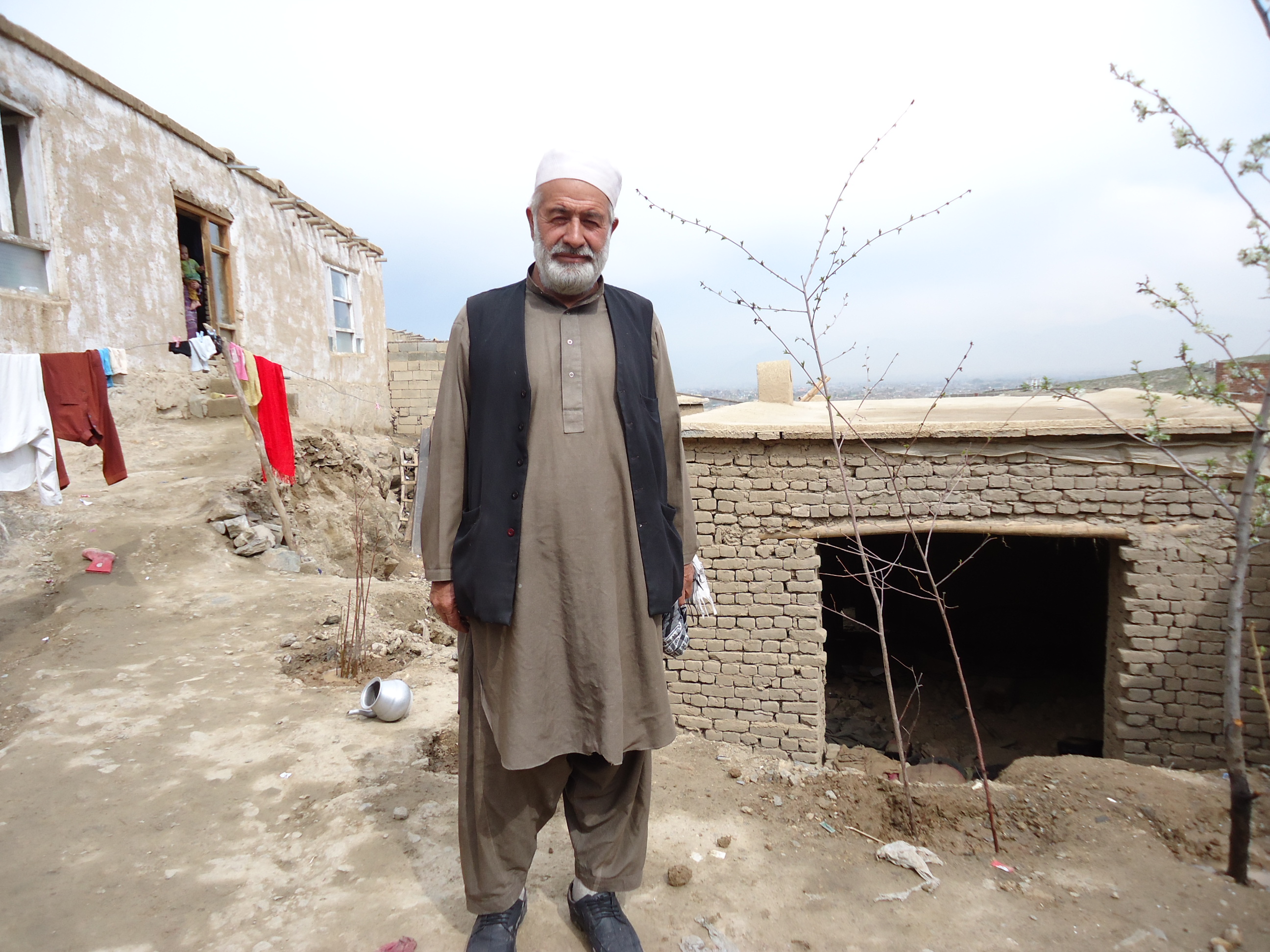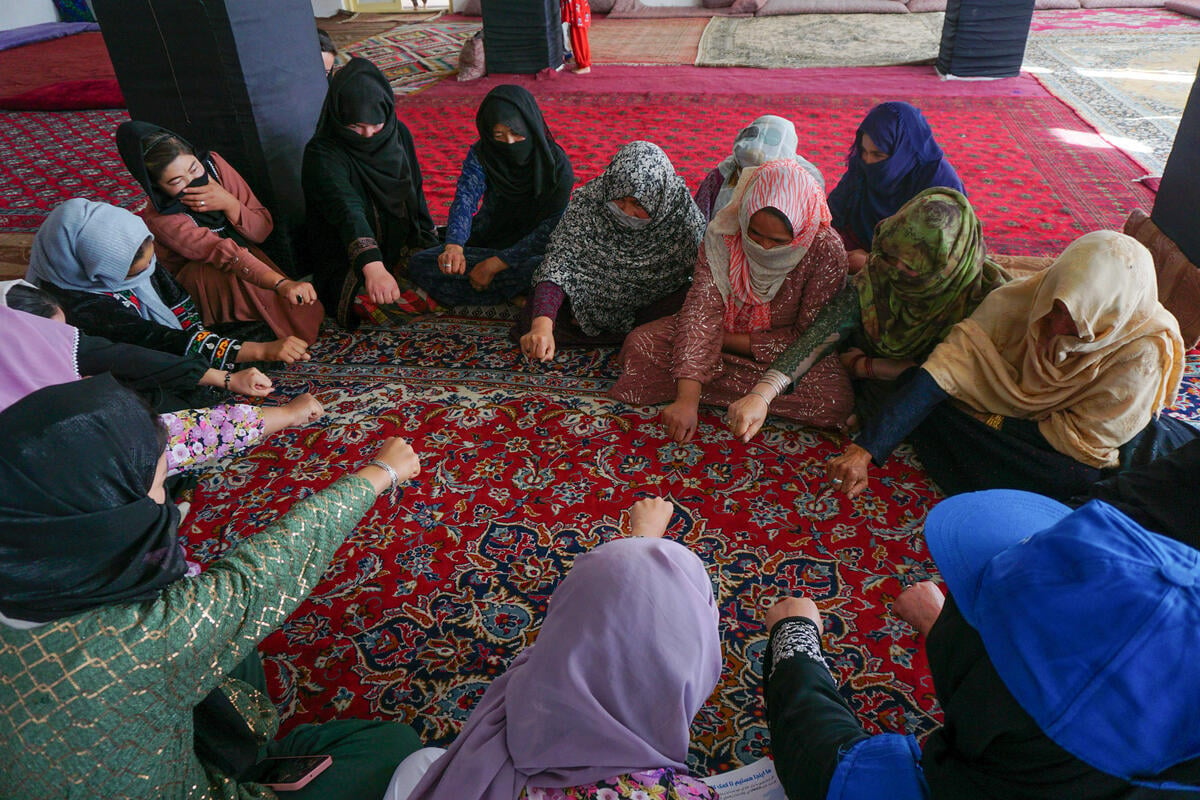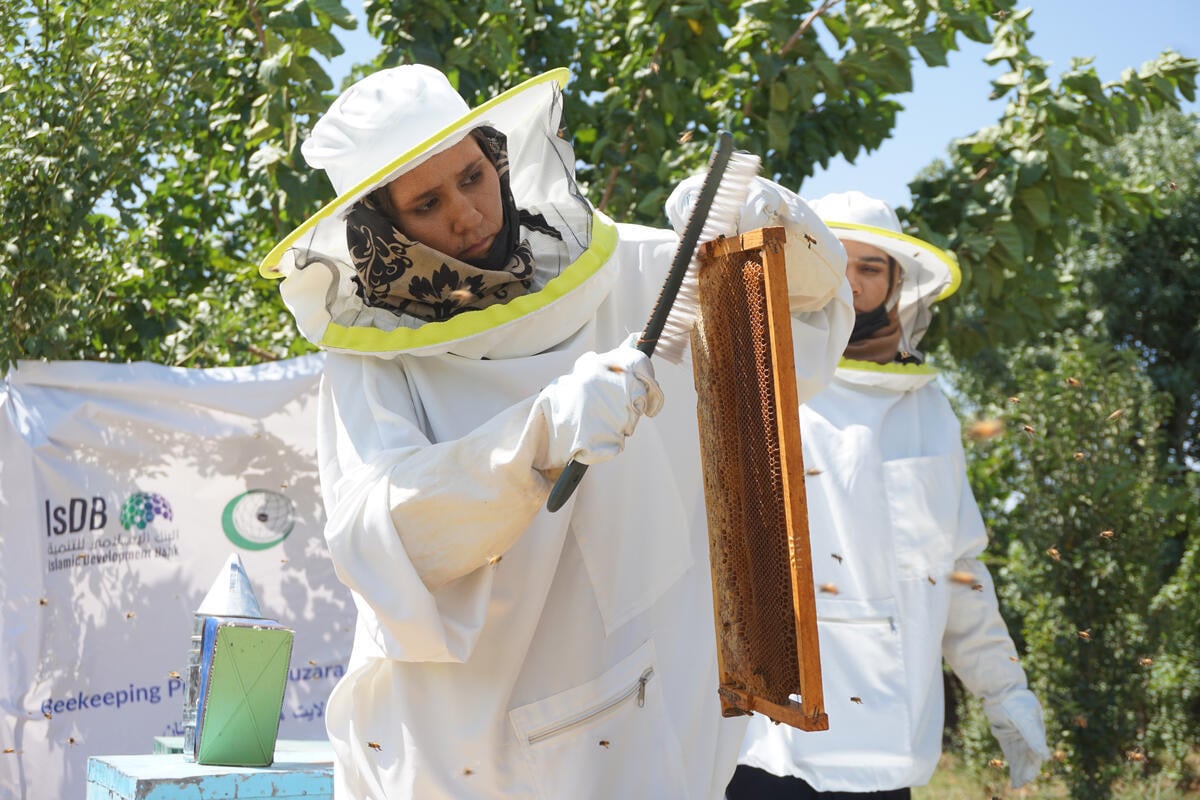Afghan Conference: Delegates endorse solutions strategy for refugees
Afghan Conference: Delegates endorse solutions strategy for refugees

GENEVA, May 3 (UNHCR) - A two-day international conference on Afghanistan's protracted refugee situation wrapped up here on Thursday after endorsing a new "solutions strategy" to support repatriation, sustainable reintegration and assistance to host countries.
Delegates from more than 40 countries had gathered in Geneva this week to discuss the strategy, which was drawn up between Afghanistan, Iran, Pakistan and UNHCR, co-host of the meeting with the Swiss government.
High Commissioner for Refugees António Guterres welcomed the international support for the initiative and praised the drafting countries, saying they had "shown the leadership to come together to establish a common proposal for a solutions strategy for Afghan refugees - one of the most difficult protracted refugee situations in the world."
Guterres said the conference had provided meaningful guidelines, adding that "this conference is not the end of a process, it is, to a certain extent, the beginning."
The strategy aims both at preserving asylum space for Afghan refugees in neighbouring countries over the coming three years and beyond, and at supporting sustainable reintegration for those Afghans who return home. It also calls for assistance to host countries.
A joint communiqué said the conference participants had "welcomed and supported the Solutions Strategy as an integrated framework for multilateral cooperation and coordination."
It added that the meeting had recognized that the three pillars of the strategy "will require the coordinated engagement of humanitarian and development actors and governments concerned, underpinned by a commitment to sustained and tangible support by the international community."
Afghan refugees constitute the largest and longest-standing refugee situation in UNHCR's history. Despite the return of more than 5.7 million Afghans to their homeland since 2002, there are still nearly 2 million Afghans in Pakistan and close to 1 million in Iran. And in recent years, return rates have slowed. In 2011, about 70,000 Afghan refugees returned home.
The solutions strategy contains measures aimed at supporting refugees, and tailored towards the specific needs of each of the three countries involved.
In Afghanistan, the focus is on supporting reintegration and the communiqué said conference participants "recognized the need to enhance the development and reintegration potential of high return communities in Afghanistan, particularly in the sectors of livelihood, basic services and shelter, in order to create communities that are viable in the long-term, which will help returnees remain in Afghanistan and support the increased return of refugees from the host countries. These efforts should also help to reduce the pressure on Afghans to leave the country in search of livelihood opportunities.
In Iran, efforts will go towards supporting returns to Afghanistan as well as help in ensuring that their returns are sustainable. In Pakistan, the focus is geared more towards voluntary repatriation and helping the host communities in which refugees live.
The conference recognized the "continued economic and social costs as well as the environmental impact on Iran and Pakistan by this protracted situation and reaffirmed the importance of international burden-sharing." The communiqué said the international community "reaffirmed its commitment to support the humanitarian needs of Afghan refugees and affected host communities in these countries."
Implementation of the solutions strategy will cost an estimated US$1.9 billion, and while the meeting in Geneva was not a donor conference, support from donors will nonetheless be key to realizing it.








